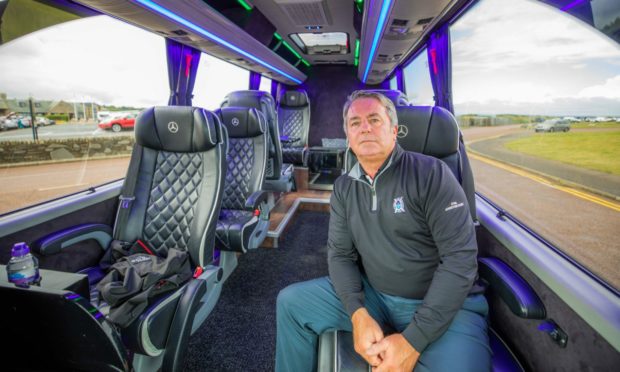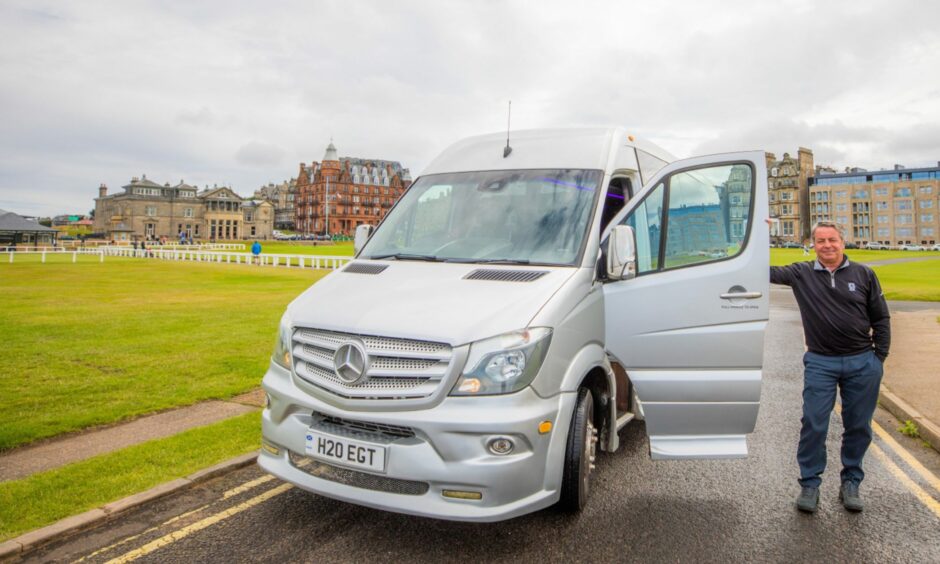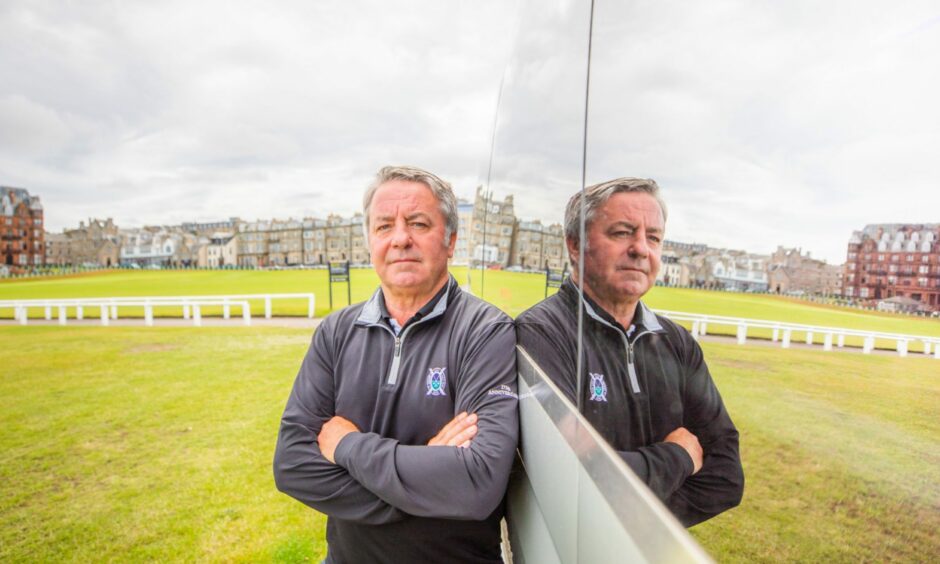The owners of a Fife golf travel company have criticised VisitScotland for its lack of financial support through the Covid-19 pandemic.
It comes as Elite Golf Transport says it needs £15,000 to see it through to next summer.
The company, based in St Andrews, has been running tours of golf courses across Scotland for the past 13 years but has largely been unable to trade during the pandemic.
Colin Hunter, who runs the business alongside Dean Barbour, said its sales are down by more than 130%.
He said:” Like many local businesses, we have been hit hard by Covid.
“We have lost a lot of income, which over two years has added up to a substantial amount.
“Realistically, it will be next summer before we can return to the level of business that we need to operate.”
‘Easy for them to refuse’
Mr Hunter said that the firm has been denied a number of grants by VisitScotland.
These include coach grants, tour funds and day tour funds.
The firm also does not qualify for any premises-related support.
The firm took out a £49,000 loan at the onset of the Covid-19 crisis.
But Mr Hunter is frustrated that it has not been able to tap into VisitScotland’s various grants to help keep it afloat.
He said: “We are yet to be awarded any funding.
“The funds have so many caveats it is very easy for them to refuse you.
“The tourism funds we could apply for were coach operators, day tour/multi-day tour and tour operator.
Mr Hunter said he believed the multi-day tour fund was a “perfect fit” for the Fife firm.
Again, though, the application for funding was refused.
He added: “We did appeal this with strong evidence showing examples of itineraries, a letter from our main supplier, accounts and list of our booked tours.
“They just dismissed this strong evidence against their reason for declining us.
“It’s frustrating because I’ve heard of other companies not getting anything, and some that are getting quite large amounts.”
Elite Golf Transport focused on survival
With the summer fast drawing to a close and international tourist numbers still nowhere near their pre-Covid levels, Mr Hunter believes the firm needs support.
He believes it needs about £15,000 between now and March, but is confident that by next summer the company will be fully up and running once again.
Mr Hunter hopes by then travel restrictions will have eased enough to allow their tours to resume fully.
“This season is now effectively over. We need to survive until March next year, after which we have very healthy bookings.
There is no doubt that many small businesses that rely entirely on international tourism have been among the worst hit.”
Wendy Chamberlain MP
“To guarantee our survival we need £15,000. Without help we cannot be sure we will make it.
“That would leave the government with our £49,000 loan to deal with and two families joining the unemployed statistics.
“We have so much work booked now for the next two years. The deposits we get from that should see us through, but that’s not ideal.”
When the golf business dried up, Mr Hunter said he turned to taxi driving and farm work to ensure he was still earning.
Mr Barbour, meanwhile, worked for a local undertaker.
‘Many businesses still facing hardship’
A VisitScotland spokesman said: “Earlier this year, VisitScotland was tasked with administering funds on behalf of the Scottish Government to alleviate the financial impact of the pandemic on the tourism sector.
“These funds were developed and allocated in collaboration with industry bodies and any applicant who was unsuccessful could lodge an appeal.
“We appreciate not all applications were eligible for the funding available and understand that many businesses within the sector are still facing hardship.
“VisitScotland is focused on the recovery of the industry, building a destination and visitor experience which allows tourism and events to flourish now and in the future.”
‘Still an extremely difficult time’
A Scottish Government spokesperson said: “We recognise that even with the reopening of the economy, this is still an extremely difficult time for many businesses across Scotland and that, unfortunately, business support cannot, and is not intended to, make up for all losses.
“Since the start of the pandemic, businesses have benefited from £3.7 billion in business support, more than a third of total Covid funding which includes £2.8 billion in grants and £965 million in Covid-19 non-domestic rates reliefs.”



